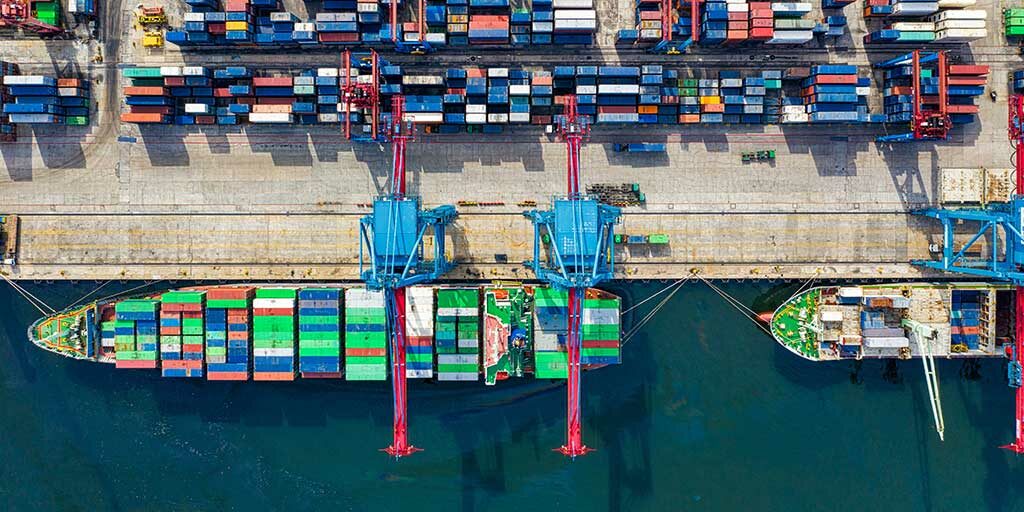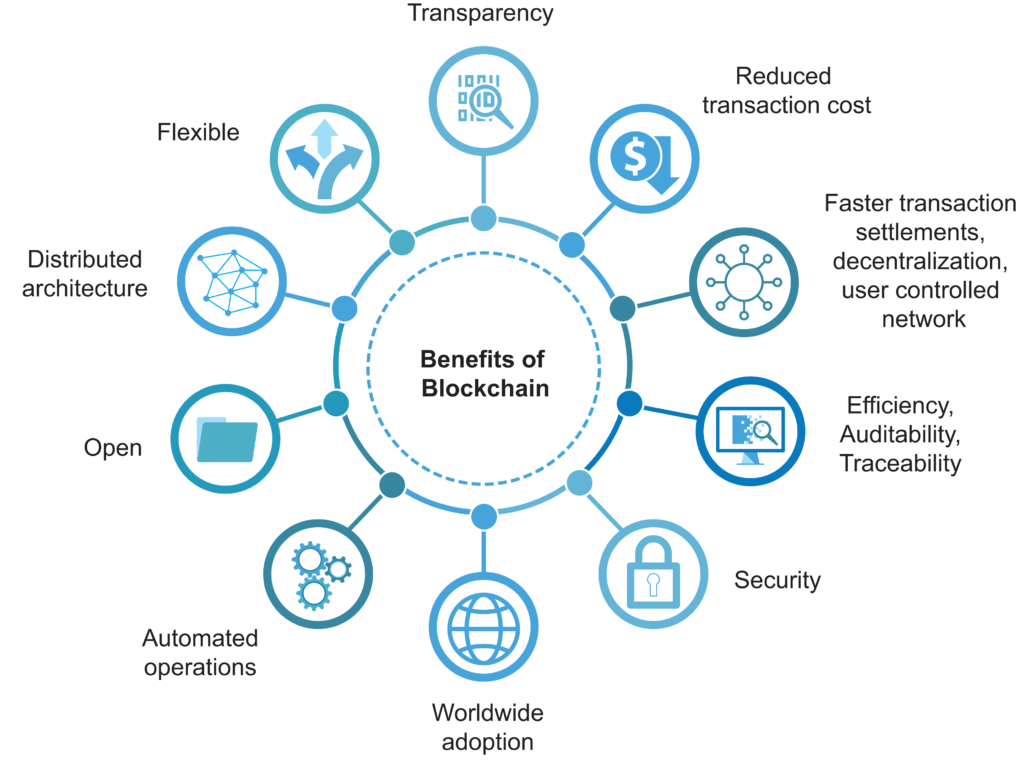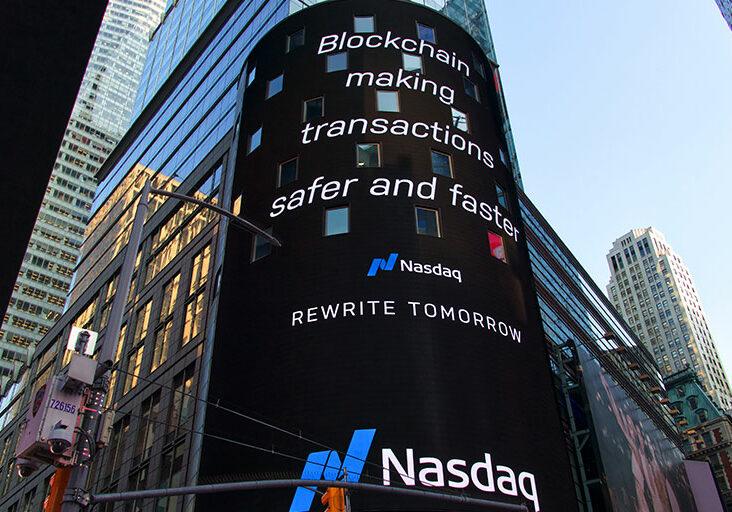How Blockchain Will Revolutionize Logistics

Siddharth Pareek

Blockchain invented by Satoshi Nakamoto is defined as a distributed database technology which can record transactions and store their data across many computers with high transparency, security, and has no controlled central organ.
Every order of transactions from genesis to finish gets recorded in the blockchain ledger, independent of the fact that whether it has many steps in a supply chain or a single online payment as each transaction happens.
In the blockchain, a peer-to-peer network is used for data sharing. It confirms data immutability, so the blocks of information can not be changed retroactively. The record’s validity is confirmed by the whole community by using the blockchain rather than using a single centralized authority.

Copyright ITpreneurs
Crypto-currency like Bitcoin or Ethereum is the most common use of blockchain in technology. But cryptocurrency is just one of many promising uses of blockchain technology.
Table of Contents
The Logistics Industry
Logistics is a multi-trillion USD industry and can be named as the backbone of just about every trade across the world. Yes, the logistics industry is vast, and of course, it has its fair share of challenges. Managing today’s logistics — all the links to creating and distributing goods — is extraordinarily complex. Today’s supply chain consists of hundreds of stages, multiple geographical locations, a boatload of payments (no pun intended), and invoices depending on each product.
What’s more, in logistics, numerous parties are involved in performing the tasks of transporting raw materials or products to customers, some of whom may turn out to be less trustworthy than expected. In a nutshell, today’s supply chains are too complicated and broken in many ways. Moreover, shipments are lost, damaged, or delayed too often because of confusion in the chain of custody. As many companies are still not digitized, there are “pen and paper” changes, where someone alters a document, and no one knows who did it or why it was changed.
Importance of Blockchain in Logistics
Blockchain technology emerged as a leading layer for financial applications. Just as the internet was a game-changer, many say blockchain will have just as significant an impact.
The technology’s ability to record transactions between parties permanently and securely has a multitude of uses in the logistics industry. Perhaps the most exciting part of the tech up-take is that blockchain solutions are tailored to each company: any business can use the technology according to its needs.
Many start-ups are now starting to use this capable technology in areas other than crypto-currencies and finance. Big names like Google, Microsoft, Amazon, and others are using blockchain technology, or even offer blockchain technology themselves. MarketsandMarkets estimates the blockchain supply chain market is expected to grow from $145 million to $3.3 billion by 2023.
Domino’s Pizza has announced that it will implement blockchain-based solutions for processes related to logistics management in Singapore and Malaysia. Domino’s Pizza currently operates over 260 stores in Malaysia and Singapore, employing more than 4,000 staff in the two countries.
Benefits of Blockchain in the Supply Chain
With so many benefits, blockchain seems to be a no-brainer for the logistics industry, which is why more companies are ready to embrace it. A 2018 Gartner survey disclosed that only 1% of CIOs reported investing and deploying it so far, whereas 23% have actual plans or interest in adopting it.
It’s very difficult for customers or buyers to know the true value of products because there is a noteworthy lack of transparency in our existing logistics system. Similarly, it’s extremely difficult to investigate supply chains when there is an uncertainty of illegal or unethical practices.

Copyright ITpreneurs
Blockchain has many benefits in logistics, which we’ll explore below.
Transparency
In the logistics industry, there is a lack of transparency, and blockchain is could very well be the perfect solution. Blockchain, after all, allows everyone to track variations or deviations on the chain of supervision.
The main advantage of blockchain actually is its transparency. Since every transaction is recorded on a block and across multiple copies of the ledger that are distributed over many nodes (computers), it is highly transparent. All the information you need is stored in one place that is easy to access.
Everyone on the blockchain can see the chain of ownership for an asset: records on the blockchain cannot get erased, which is essential for a transparent supply chain.
Reduced Transaction Costs
Processing and administration costs have risen to as high as 20% of transportation’s overall costs, due to over-reliance on paper transactions. For an average invoice, a company has to wait 42 days before receiving payment. Every day, there are 140 billion tied up in disputes for payments in the transportation industry.
Several supply chain start-ups such as Cloud Logistics see an opportunity to provide blockchain-enabled supply chain solutions to reduce costs for the vast supply chain industry. More will probably join as they realize the importance and profitability of blockchain-enabled solutions, which can transform the supply chain and logistics industry.
When the blockchain networks reach the mass market, it allows companies to save $50 billion a year at first, and eventually more than $500 billion a year.
Faster Transaction Settlements
Blockchain provides harmony as there is no disagreement in the chain regarding transactions; all entities on the chain have the same version of the ledger. This makes the transaction process more efficient and helps achieve a quick delivery of goods and services through mutual trust among participants.
Eliminating Inefficiencies
By emerging as a solution in the world of trucking and logistics, blockchain technology has answered much inefficiency that has afflicted the industry for years.
90% of trucking businesses have no more than six trucks, which causes the industry to struggle with related transporters with carriers. As a consequence, truckers drive about 29 billion miles per year with partial or unfilled truckloads. A number that could be drastically lower if organizations were more aware of the location of goods.
Blockchain also makes approvals and customs clearance instantaneous and more efficient through the use of smart contracts. It lessens processing times for goods at customs checkpoints.
Organizations need up-to-date, secure, and reliable data to make decisions. Blockchain ensures exactly this type of data across the transportation and logistics environment since the entire network adds to data authentication.
Auditability and Traceability
Auditors have an easy time understanding items and resources because the transaction history is locked inside each block. It makes the transaction verification and checking process easier. Similarly, customers can also track their products: blockchain technology offers an accessible, instant solution for order tracking and verification.
In the food industry, it is necessary to have all the records to trace each product to its source. So, Walmart, Unilever, Nestle, Tyson, and Dole use some form of blockchain to keep track of their products. Blockchain records the source of each product, its processing and storing, and its sell-by-date.
Diamond-giant De Beers even uses blockchain to track stones right from the mine to the point they are traded to buyers.
Alternatively, blockchain technology can help match rate quotes to invoices and manage potential inconsistencies between them. It helps in the modification of data block’s transactions through its recording different things with efficiency.
Security
In a blockchain, one block links from both sides with other blocks, which makes it remarkably protected. Blockchain security is very efficient and scalable as there is no central authority over the whole system.
Those who are interested in hardening their security and making their digital data involved operations more transparent; blockchain could very well be the answer. There is no way for the third party to change the information that is stored in the chain i.e. information is unalterable. It enhances the security level of blockchain as compared to other competitive solutions.
IoT (The Internet of Things) offers different challenges related to coupled devices. They demand a security level to be unbreakable and up-till now, blockchain is the best solution, as advanced encryption techniques ensure the protection. Distributed ledgers and smart contracts are other features of blockchain. Theft, premium fees, ransomware, corruption, and tracking related problems can be handled easily using different blockchain features.
Worldwide Adoption
Initially, blockchain was largely accessible only for financial trades, but due to the usage of blockchain in recording, tracking, and verification of trades, all categories of organizations are interested in the blockchain ledger. This includes organizations in the fields of ridesharing, cloud storage, voting; companies in all industries are beginning to see blockchain’s potential.
Because of the mass adoption of blockchain in the transportation and logistics industry, universal standards are made by some companies. Recently an organization, Blockchain In Transport Alliance (BiTA), is working on such a project.
The Chinese giant Alibaba has adopted the blockchain solutions to fight food fraud, secure medical data and track cross-border shipments.
There is an announcement that Denmark’s transport giant Maersk in collaboration with IBM will present Russia’s first blockchain logistics policy for international cargo in 2019.
Automated Operations
Blockchain allows companies to save time and costs by computerizing the entire business process through the use of certified smart contracts.
A huge supply chain network can be united by blockchain because it has the potential to use a decentralized system and integrate the blockchain solutions into a current ERP system. These two attributes when kept together, can improve the automation of the supply chain.
Distributed Architecture
As defined earlier, blockchain (distributed database) keeps records of digital data or events so that it is shared among all nodes. It allows many participants to complete data assessment, inspection, or addition. Public information is kept safe. So, if a node, somehow, goes down, the other nodes can be used to retrieve it.
Challenges Ahead
Blockchain Acceptance
In the industry, there are still leaders for whom blockchain is naive. For some, it is a craze while there are just a few who are converting it into real financial gain. On the other hand, it is still far away from industry-wide practices and standards which act as a turn-off for people who want to explore more on this.
In addition, the support too hasn’t been there by the leaders which makes it a risky venture in getting into. There are organizations like the Blockchain in Transportation Alliance (BiTA) who are working to bring a common framework across the industry.
Complex Industry
Logistics world is not only huge but complex too where managing delivery and flux of freightage at various levels isn’t easy. Depending on the shipment logistics network can run through several stages and territories. As this industry is highly dependent on paperwork hence delay of delivery can be impacted with a slight manual error itself.
Nascent Stages of Technology
Blockchain is still in the nascent stages of development, with relatively few designers familiar with the technology. This can make implementation complex and costly.
Distributed ledger technology (DLT) also represents different viewpoints of creating supply chain applications with different properties around unchangeability, privacy, energy consumption, and adaptability. In order to avoid more problems around DLT one needs to have a proper understanding of how to correctly apply the technology to practical use cases.
Blockchain’s latency still needs to be improved as it is not instantaneous. If for e.g. the private key that one’s organization has gets damaged, that blockchain is then lost and is no longer verifiable.
There are those who are of the view that before technology, trust should be built around first. This can probably be achieved if consensus among the organizations is reached with respect to governance, processes and the culture.
Concerns Around Data
A distributed ledger is where blockchain application stores each transaction which in turn is used by several parties involved in the whole process.
Add to it the cryptographic algorithms behind the scenes which adds to the additional data. It becomes a difficult task if the organizations don’t find a fine balance between storing these large data structures in a decentralized ledger and traditional databases at the same time.
As mentioned earlier about the trust aspect, the new blockchain technology in one of the most fragmented and conventional industries will take its own pace of time. For e.g. electronic data interchange (EDI) is a standard that has been in practice for more than 3 decades but still, different companies use their own way of implementation making integration and development around it a painstaking exercise.
How Is Blockchain Used in Logistics
Few examples of how organizations are innovating in the logistics industry through blockchain.
ShipChain
Founded in 2017 ShipChain’s bedrock is on the transportation of goods and allowing you to track any goods from the moment of shipment from production to final delivery; in other words, supporting the shipping process from end-to-end. It uses the immutability and decentralization of blockchain technology and IoT devices to collect information about the movement and conditions of cargo transportation in real-time.
Provenance
Founded in 2014 Provenance uses blockchain to increase transparency in the retail industry by providing key information about each product: materials, ingredients, suppliers, manufacturing processes, equipment involved, storage, transportation, and more. Retailers showcase their supply chains on a ledger who will also add information about the conditions of storage and transportation thus creating a complete history of the given goods/product.
Waltonchain
Founded in 2016 Waltonchain integrates RFID data and IoT into the blockchain in the logistics to boost safety and efficiency. Through this, there is no need for central structures and oracles.
Getting Started with Blockchain
Many industries across the globe are taking notice and have started to figure out different ways to implement blockchain technology. So, if the blockchain is as revolutionary as it seems, why hasn’t every company implemented it? Well, progress isn’t noticed overnight. Just as the internet eventually overthrew the intranet as the leading technology, permissionless blockchains will likely do the same.
As the first step, logistics companies are required to educate themselves, and then digitize, standardize, and cleanse their data. When this industry-wide standard is implemented, companies are required to practice an ecosystem of supply chain partners to use the standard in a common permissionless blockchain atmosphere. The shipping and logistics is an old industry, but it is a great sector to be one of the first to adopt blockchain.
Courses to help you get
results with Blockchain
Blockchain Foundation™
The industry-recognized CCC Blockchain Foundation provides various practical exercises that allow you to experience two of the most popular cryptocurrencies – Bitcoin and Ethereum. The course’s exposure to real-life blockchain and crypto trading ensures the knowledge you gain is ready to be implemented.

About the Author
Senior Consultant with over 14 years of IT experience in delivery, consulting, and management (project & programme).
Never miss an interesting article
Get our latest news, tutorials, guides, tips & deals delivered to your inbox.
Keep learning




